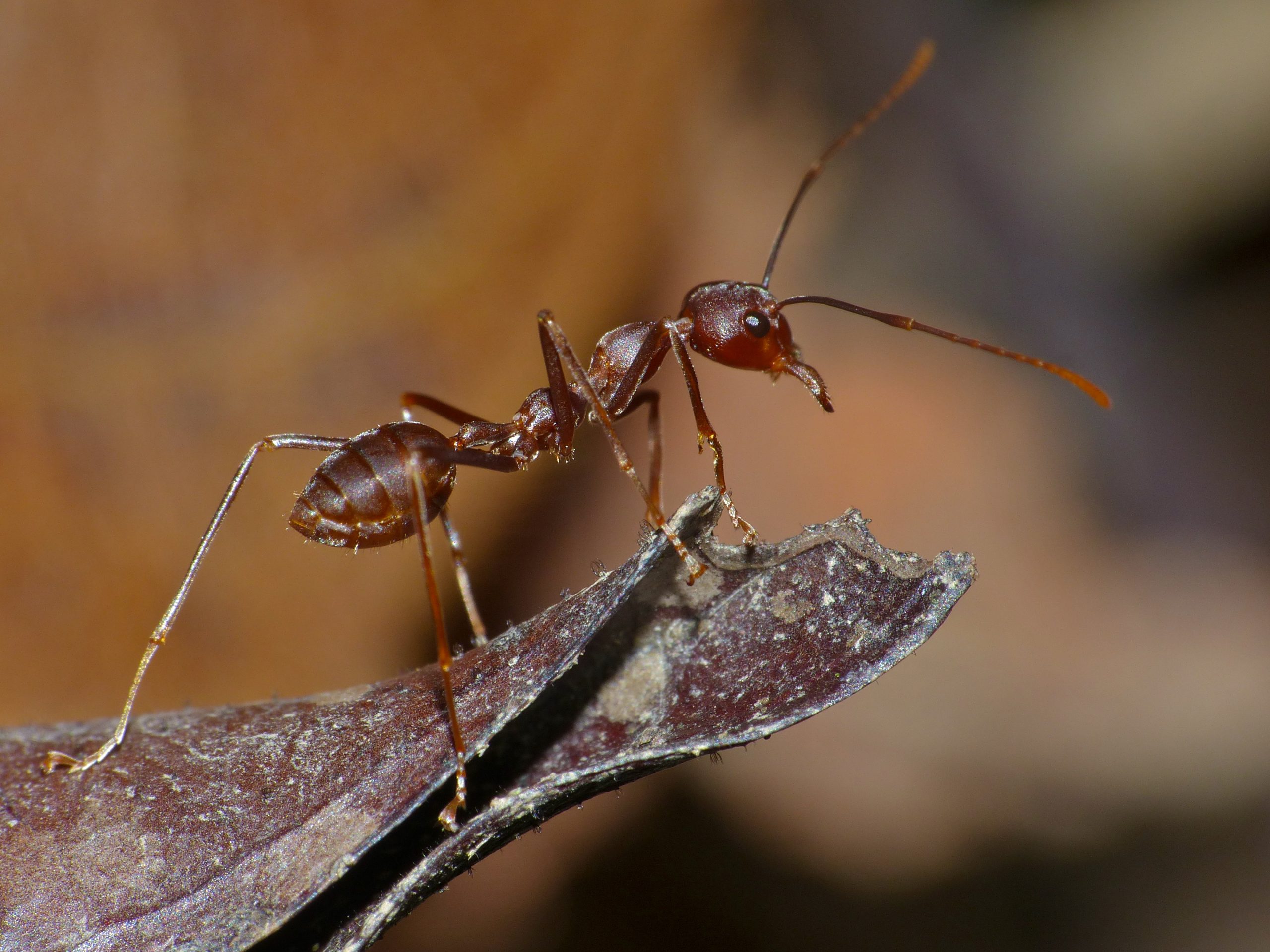Ants Are Essential Ecosystem Engineers

Ants are the dominant waste managers of tropical rainforests, new research shows. In a large-scale study in the Malaysian rainforest, ants were responsible for moving more than half of food resources from the forest floor — playing a significant role in keeping the ecosystem healthy and functioning.
Ants collect dead organic material and take it to their nests and in the process redistribute nutrients around the ecosystem.
“Ants have been the subject of many ecological studies because they are dominant and abundant, filling many different ecological niches,” says Louise Ashton of the Natural History Museum in London and co-author of the new study.
“However, very few studies have actually quantified the contribution of ants to ecosystem functioning.”

Ashton and her colleagues conducted a large-scale ecosystem manipulation experiment on 50 x 50 m plots of land in tropical rainforests in Malaysia. They used a combination of caged and open treatments to make food resources in the plots available to all animals, only invertebrates, or only non-ant invertebrates. This allowed them to tease apart the contributions of ants, other invertebrates, and vertebrates to the removal of food resources.
Their results suggest that ants are responsible for at least half of all resource removal and for 61% of all scavenging by invertebrates. Overall, invertebrates accounted for about three-quarters of the removal of food resources from the forest floor, while vertebrates were responsible for around a quarter.
The study also showed that in the absence of ants, no other animals compensated to maintain levels of food removal. This suggests that without ants, dead organic material would build up and decompose more slowly, resulting in a less diverse soil environment.
“Previous work has shown that ants concentrate nutrients around their nests and create hotspots of diversity,” says Ashton.
“We predict that this ant-mediated ecosystem process will break down with increasing human disturbance. We know that large disturbances like heavy logging and conversion to oil palm plantations change ant assemblages. In very disturbed habitats there will be less ant-mediated nutrient redistribution and a homogenization of diversity may occur.”
Reference:
Hannah M. Griffiths, Louise A. Ashton, Alice E. Walker, Fevziye Hasan, Theodore A. Evans, Paul Eggleton, Catherine L. Parr. Ants are the major agents of resource removal from tropical rainforests. Journal of Animal Ecology, 2017; DOI: 10.1111/1365-2656.12728
